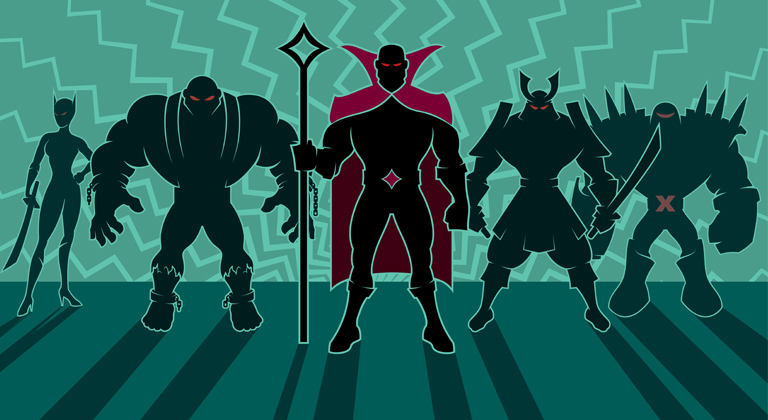The Twelve Writing Tips of Christmas
By: Ginger | Posted on December 22, 2023
As 2023 draws to a close, we thought it was a good time to reiterate some of the top tips that authors should be thinking about in terms of their books and marketing efforts. And since the holidays are upon us, it seemed appropriate to put them all together in a festive and familiar way. So with that said, here are Ginger’s twelve writing tips of Christmas. May they help lead you to happiness and success as you continue on your publishing journey in 2024! Snow has already started falling across much of the United States and Canada, leaving many of us with backyards and main streets that look something out of a holiday-themed small-town romance novel. (So be wary all you successful big-city girls heading back to spend the holidays with your family, because there might just be a flannel-wearing hottie handyman waiting there to sweep you off your… Read More >
Avoid these top 10 Grammatical Errors
By: Ginger | Posted on December 15, 2023
As authors, we all strive for perfection in our storytelling, yet sometimes, minor grammatical errors can overshadow our work. That’s why understanding the rules and making sure your book is properly edited is so crucial. You don’t want readers getting distracted by small mistakes, or even worse, having the more overly enthusiastic of the bunch listing the errors out in their review! To help you recognize and rectify these mistakes before going to print, Ginger has put together a list of the 10 most pervasive grammatical errors. From subject-verb agreement to the nuances of punctuation and the pitfalls of passive voice, he provides examples and advice on identifying and fixing a variety of issues. After all, mastering grammar is not just about avoiding criticism; it’s about refining your art and ensuring that your narrative shines in its fullest glory. Did anybody catch the fifth Indiana Jones movie this summer? While… Read More >
What can writers learn from reading Freida McFadden?
By: Ginger | Posted on December 1, 2023
Physician turned New York Times bestseller Freida McFadden is a beacon of self-publishing success, not only for writing wonderfully addictive books, but for making all the right moves to promote them as well. Any author looking to up their own game need look no further than Freida as an example of what to do right, which is exactly why Ginger has been studying her work. In today’s blog, he’s taking us through what he’s learned with regards to what has made Freida so incredibly successful. Whether it’s her skillful use of suspense and masterful crafting of plot twists, or her domination of social media and marketing copy, McFadden’s methods offer a treasure trove of lessons for other self-published authors that are looking to leave their own mark in the world of literature. While many of us self-published authors struggle to find success with our books, there are a good number… Read More >
10 Ways You Can Master The Art of “Show, Not Tell”
By: Ginger | Posted on November 17, 2023
The reason the advice to “show, not tell” seems so tired and overused is that you’ve likely been hearing it since you first picked up a pen. It’s arguably the most important technique in a writer’s arsenal, but it doesn’t come naturally. If you read stories written by children, they’re almost all telling and very little showing. That’s because it’s far easier to simply tell your reader what it is you want them to know than to try and show it to them through descriptions, actions, or dialogue, yet by doing so your story is left flat and lifeless. By showing the reader your world, you create an emotional connection, you engage their imagination, and you leave a lasting impression that persists far beyond when they’ve finished your book. Today, Ginger has put together a list of 10 different ways you can show, not tell – each one backed up… Read More >
What can writers learn from the works of Andy Weir?
By: Ginger | Posted on November 10, 2023
Certain authors create stories that captivate readers, leaving an indelible mark on the literary landscape. Andy Weir, known best for his self-published hit The Martian, is one such writer. His ability to weave compelling narratives set against the backdrop of space exploration has garnered widespread acclaim, and it leaves other authors curious – what secrets can be gleaned from Weir’s writings? Today, Ginger takes a deep dive into the writings of Weir in an attempt to uncover the elements that make his work resonate with readers. By dissecting his storytelling techniques, we can all learn to be better writers ourselves, and create works that will be as “out of this world” as The Martian. A few weeks ago, I wrote a blog post about the only four ways to consistently sell books, and one of the examples of a successful self-published author using one of these techniques was Andy Weir,… Read More >
5 Tips for Crafting Deliciously Memorable Villains
By: Ginger | Posted on November 3, 2023
As much as we know we’re supposed to root against them, there is something undeniably alluring to a well-crafted villain. Perhaps it’s because we’re drawn to these complex, competent, and often morally ambiguous antagonists who challenge our heroes and help intensify the drama in whatever type of story they appear in. But creating memorable villains is an art, so in today’s blog, Ginger is attempting to unravel some of the secrets that help make our bad guys truly unforgettable. From the complex backstory of Hannibal Lecter to the moral ambiguity of Jaime Lannister, these villains have distinct traits, personality quirks, and compelling motivations that make them uniquely suited to causing havoc in our stories. When done right, these characters will linger in the minds of our readers, which is the best way to keep them coming back for more! Whether it’s Lord Voldemort, Darth Vader, or HAL 2000, one thing… Read More >
What can GoT author George R.R. Martin teach us about Characterization?
By: Ginger | Posted on October 6, 2023
One of the biggest challenges new authors face is juggling multiple characters – especially when the story jumps between the viewpoint of different people. This is especially important when writing a series, or a big epic novel, but can also apply to smaller books and stories as well. One of the undisputed masters of juggling multiple character Points of View (POV) is George R.R. Martin – and in this blog post, Ginger will cover some of the things we can learn about characterization from studying his work. In addition to writing and self-publishing my own books, I’ve worked with a lot of authors and helped develop and edit their books. One of the issues I consistently find new authors struggle with is keeping a coherent point of view throughout their books – especially when they write them in third-person perspective, and jump from character to character. If done poorly, jumping… Read More >
What can writers learn from the works of Rick Riordan?
By: Ginger | Posted on September 29, 2023
Publishers have long understood how lucrative the young reader market is, and are always anxious to find the next big franchise to build a vast world of marketing and books around, one that can stand the test of time and continue to enchant new generations of readers. When Rick Riordan launched his wildly popular Percy Jackson series back in 2005, they probably knew very quickly that they’d found their mark. Since then, the series has gone on to sell close to 200 million copies, become a movie, and will soon stream as a television series on Disney+. But what is it about the stories that make them connect so well to their audience? That’s exactly what Ginger is going to break down in today’s blog, as we once again dive deep into the work of a successful author to learn what it is that they are doing right, in the… Read More >
10 Essential Tips for Crafting Effective Horror Stories
By: Ginger | Posted on September 15, 2023
For authors, Halloween is the perfect time to unleash the darker recesses of their imagination by crafting tales that send shivers down readers’ spines. The art of chilling storytelling has evolved over centuries, with authors like Edgar Allan Poe and Stephen King shaping the genre’s landscape while adhering to its core essence—a masterful mix of fear, suspense, and unease. Similar to his article last week which dove into Science Fiction world-building, this week Ginger is examining the ingredients that make up truly effective horror stories. By breaking down the core elements that help turn regular tales into spine-tingling literary nightmares, you too can write books that keep your readers up at night, long after they’ve reached the end of your book… Some Starbucks stores have already unleashed their pumpkin spice products, which means summer is effectively over! For many of us writers, our attention turns next to Halloween – one… Read More >
Mastering the Craft of World-Building in Science Fiction
By: Ginger | Posted on September 8, 2023
One thing that separates genres like science fiction from others, is the idea that they usually take place in an unfamiliar setting. Whether it’s a completely alien world, the distant future, or simply a slightly different version of earth than our own, it is this unfamiliarity that allows a reader’s imagination to really soar. But world-building isn’t easy. For many authors, building a whole new world or reality can be intimidating, but it’s still the most important skill to master if you want to write engaging, provocative science fiction. Fortunately, many successful sci-fi authors have already paved the way, perfecting techniques at world-building to write truly groundbreaking and award winning novels. By studying what they’ve done, you can put together believable worlds of your own, which is why Ginger has broken down those techniques into a list of tips and strategies that are common to most science fiction novels. World-building is… Read More >

















